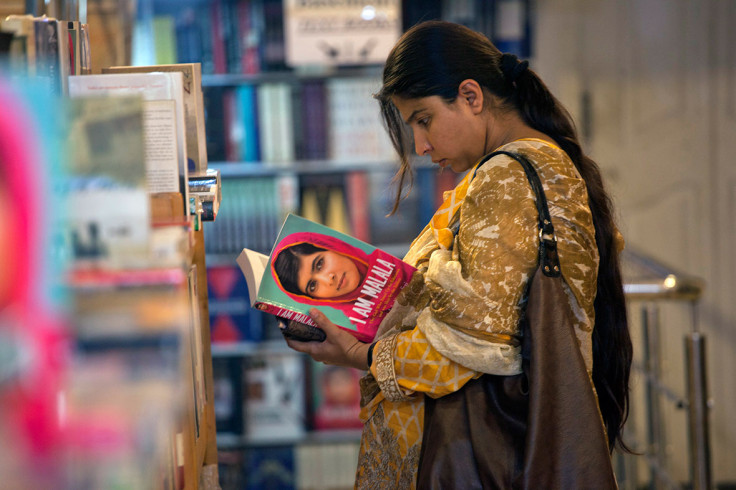Malala Yousafzai: Mixed Reaction in Pakistan to Teenage Activists Nobel Prize Award
While most of the free-thinking world is celebrating the news that child activist Malala Yousafzai has been awarded the Nobel Peace Prize, it's a different story in her home country of Pakistan.
Aged 15, Malala was shot by the Taliban for advocating for women in Pakistan to receive an education.
She miraculously survived the murder attempt, despite taking a bullet to the head, and was transferred to the UK with her family, where she received life saving medical treatment and sanctuary from the oppressive Taliban regime operating in her home town of Swadh,
Yousafzai now goes to school in Birmingham and, recognised the world over and commended by presidents, prime ministers and royalty for her unfaltering courage, she has become a worldwide symbol for the fight against oppression of women and the right to education.
But by comparison, in Pakistan, news that the 17-year-old has become the youngest person ever to win the peace prize has been met with apparent apathy, suspicion and even contempt.
It's a political decision. Her father is a good salesman, that's it, and the daughter has also become a salesgirl, dancing to the tune of the West. They don't deserve anything.
Tariq Khattack, editor of the Pakistan Observer newspaper, controversially condemned the award. In an interview with the BBC he said: "It's a political decision and a conspiracy. She is a normal, useless type of a girl. Nothing in her is special at all. She's selling what the West will buy."
While Malala made the front pages of all the British press for the prestigious accolade, and the story appeared on news channels around the world, with the media celebrating her triumph, news of the announcement barely garnered a mention on Pakistan's TV news.
Some more cynical Pakistanis contend that Malala's fight against the Taliban is all part of an elaborate Western conspiracy and regard her as a mere stooge for the west, employed to discredit the people and the culture of her homeland.
"The Americans and Malala's father conspired to get her shot so she can become a hero," was the inconceivable reaction of an editor in a newspaper published in her home town of Mingora.
A housewife from Islamabad commented: "What has she done to deserve [the Nobel prize]? She may be brave, but she's only a child. They should have waited 10 years and let her make a mark among the deprived sections of the society."

Tariq Khattack seemed to suggest that Malala is a puppet for her father to pursue his own political ambitions. Ziauddin Yousafzai has strong links with ANP, a political party associated with the Red Shirt movement.
"Her father is a good salesman, that's it, and the daughter has also become a salesgirl, dancing to the tune of the West. They don't deserve anything," he said.
She did however, receive commendations from leading Pakistani political figures including Prime Minister Nawaz Sharif and former President Asif Zardari, who congratulated her and the people of Pakistan on this rare achievement, adding that she had brought pride to the nation.
In Mingora, it was left to Malala's former school friends, those who were with her when she was attacked by the Taliban, to celebrate her success.
"We're very proud of Malala for winning the Nobel peace prize. She has worked so hard for girls in Pakistan to have an education. And she is our friend," they said.
© Copyright IBTimes 2024. All rights reserved.







